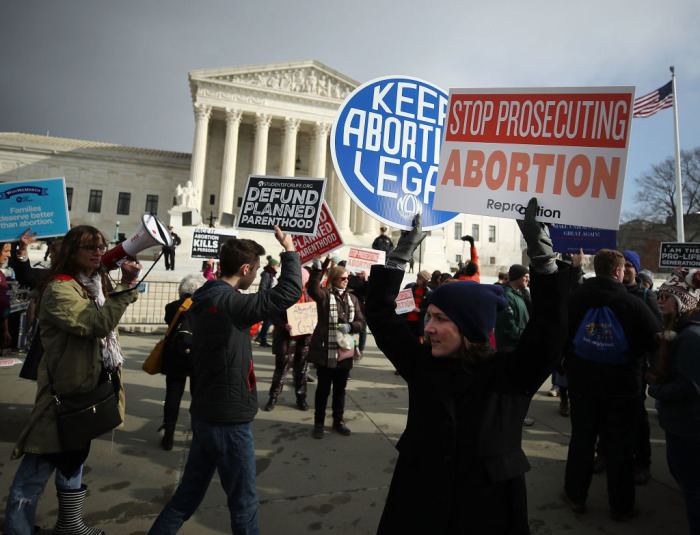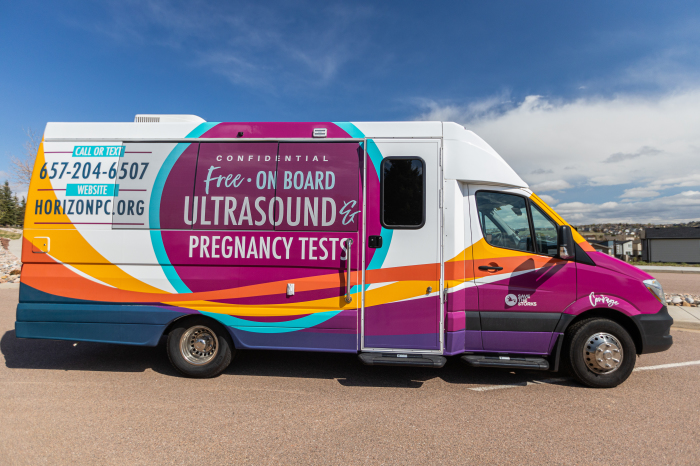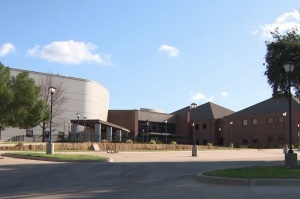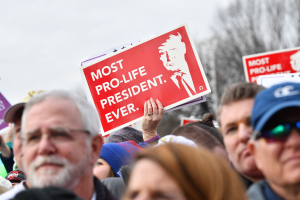'Scientific facts' will lead to Roe v. Wade's reversal, pro-lifers hope as SCOTUS weighs 'landmark' case

Pro-life activists are hopeful that the U.S. Supreme Court will take the opportunity to listen to "scientific" reasoning to overturn elements of Roe v. Wade as the high court has agreed to hear a challenge to a Mississippi law banning abortions after 15 weeks of gestation.
The CEO of the pro-life ministry Save the Storks is confident that the U.S. Supreme Court’s decision to hear Dobbs v. Jackson Women’s Health Organization could lead to erosion of the court's precedent defining abortion access as a national right.
On Monday, the Supreme Court granted a writ of certiorari to the state of Mississippi, agreeing to review a unanimous decision by a three-judge panel on the U.S. Fifth Circuit Court of Appeals that the Mississippi law is unconstitutional.
The news comes as the court consists of six justices appointed by Republican presidents and three justices appointed by Democratic presidents, leading some to speculate if the court could strike down at least some of the Supreme Court’s precedent set in its 1973 ruling.
Save the Storks CEO Diane Ferraro told The Christian Post that she is optimistic that the Supreme Court will erode the influence of Roe.
“We know that when Roe v. Wade was passed in 1973, the court did not have all of the facts, and this was a strategic movement really on the part of … the side that was representing Roe,” she recalled.
Crediting Mississippi for doing “a phenomenal job putting the science together,” Ferraro asserted that the Supreme Court has “the scientific facts on how a baby does feel pain in the womb at 15 weeks.”
According to Ferraro, “this is presenting an updated viewpoint to the Supreme Court justices for them to consider.”
“We do feel and trust and we’re praying that this will help convince them that Roe v. Wade does need to be overturned,” she said. “We are praying for the justices, that they will truly consider all of the facts and that the case will be something that they consider not with the past in mind but with the future and how they can really help empower moms.”
“We do feel that once they see the facts, [and] they understand the science that is presented to them as Mississippi has put together, that they won’t be able to deny what the facts are about the stages of life for that preborn baby in the womb," Ferraro added.
Ferraro told CP that the court’s decision to hear a case on Mississippi’s 15-week abortion law “will help open the door for them to hear other cases.”
“And the fact they are willing to hear this is so encouraging to … us and to anyone who is pro-life,” she stated.
More than 500 pro-life bills have been introduced at the state level in the first four months of 2021 and dozens of them have become law.
Maintaining that her organization was “encouraged” about the widespread passage of pro-life laws across the U.S., Ferraro attributed the surge in pro-life legislation to the fact that “we have so much science to back us up.”
“Whereas in 1973, they might … not have had all of the scientific facts that we do now,” she said.
Other pro-life organizations have praised the Supreme Court’s decision to hear the Mississippi case and pointed to science as to why the justices should revisit existing abortion precedent.
Marjorie Dannenfelser, president of the national pro-life grassroots organization Susan B. Anthony List, described the Supreme Court’s decision as “a landmark opportunity for the Supreme Court to recognize the rights of states to protect unborn children from the horrors of painful late-term abortions.”
Citing the wave of pro-life legislation at the state level, Dannenfelser remarked that “it is time for the Supreme Court to catch up on scientific reality and the resulting consensus of the American people as expressed in elections and policy.”
Lila Rose, president of the pro-life group Live Action, called on the Supreme Court to “acknowledge what science has long revealed: that a unique and individual human life begins at the moment of conception.”
“Every child including a baby ‘pre-viability’ should be protected from the horrors of abortion and the abortion industry,” she argued. “A 15-week-old baby has a face, fingernails, eyelashes, and a heartbeat and brain waves. The Supreme Court should grant equal protection under the law to all humans, even from the very beginning of every human’s life.”
Carol Tobias, president of National Right to Life, applauded the Supreme Court for “examining the Mississippi law.”
“[W]e know more today about the life of a child in the womb than we did 50 years ago,” she asserted, adding that “viability is not a characteristic of the baby but of how advanced our technology has become.”
Ferraro alleged that the state laws and “this case that’s going to the Supreme Court” are “reminding women that we have 2,700 … pro-life pregnancy resource clinics across the country” that provide free ultrasounds to show mothers the heartbeat and the baby’s picture.
The activist said those are things mothers don’t see “when she goes to an abortion clinic.”
Save the Storks has forged relationships with many of these pregnancy centers, providing them with mobile medical units called “Stork Buses” that provide women with no-cost pregnancy testing and ultrasounds. On Wednesday, the pro-life organization delivered a brand-new bus to the Horizon Pregnancy Clinic in Huntington Beach, California.
The deployment of a “Stork Bus” to Huntington Beach is part of Save the Storks’ strategic initiative to place the buses in “mission critical markets” where “abortion rates are highest,” Ferraro said.
“They’re going into Los Angeles three days a week, where there are a reported 100 abortion clinics,” she stated. “The Huntington Beach Pregnancy Center is going into Anaheim, into Los Angeles, into Long Beach and serving these women who have thought that Planned Parenthood was their only option before.”
Ferraro reported to CP that the Stork buses, which have been on the road for nine years, have saved an estimated 8,000 babies from abortion. The pregnancy centers, in partnership with Save the Storks, also establish long-term relationships with mothers after they give birth to their babies.

Ryan Foley is a reporter for The Christian Post. He can be reached at: ryan.foley@christianpost.com




























